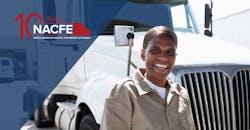As you read this, we are less than 20 days away from the kickoff of Run on Less Regional. We just announced the 10 drivers who will be participating in the Run and we have firmed up our three technology days.
One of the big takeaways from the work we have done so far on regional haul and in preparing for the Run is the diversity of regional haul. We have defined regional haul as driving in a 300-mile radius of a home base, but within that definition, there is room for a variety of types of hauls. Some of the trucks in the Run are day cabs but others are sleepers because in some regional haul applications drivers will spend nights on the road. However, in almost all cases, when it comes to regional haul, drivers get home at least once a week and almost every day.
Some of the drivers in the Run are in drop-and hook-operations with quick turnarounds. One driver can have as many as six trailer swaps per day. Some of the trucks will go out and back full while others will have empty backhauls.
Most of the fleets in the Run will be operating 53 ft. dry vans, but there are also are a few reefers and 28 ft. trailers and 28 ft. doubles that will be on the road.
There is even going to be a natural-gas-powered truck in the Run. Regional haul lends itself to alternative fuels and even electric vehicles given that the trucks return to base regularly.
Some regional haul drivers are only responsible for driving the truck while others also have to take care of unloading cargo at various stops.
The driver pool for the Run is diverse as well. We have seasoned drivers with more than 30 years behind the wheel and others with as little as a year of driving. Regardless of experience level, all the drivers are committed to operating as efficiently as possible.
Many of you may have noticed that we have not set an MPG goal for this Run. The fleets participating in Run on Less 2017, which focused on long haul, achieved an average 10.1 MPG throughout the Run. We will not see those numbers in this sequel to that first Run. The type of freight, backhauls, the number of starts and stops and the percent of time they will be driving in cities make it more challenging to reach that same fuel economy.
What we hope to discover in this Run is what combination of equipment, technologies and practices will yield the best freight efficiency. NACFE sees Run on Less Regional as a chance to learn about best practices in this growing segment of the trucking industry.
About the Author

Michael Roeth
Executive Director
Michael Roeth is the executive director of the North American Council for Freight Efficiency. He serves on the second National Academy of Sciences Committee on Technologies and Approaches for Reducing the Fuel Consumption of Medium and Heavy-Duty Vehicles and has held various positions with Navistar and Behr/Cummins.
